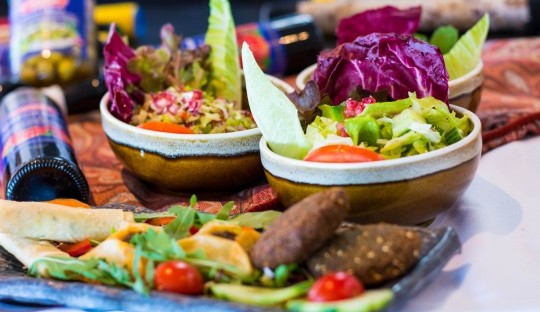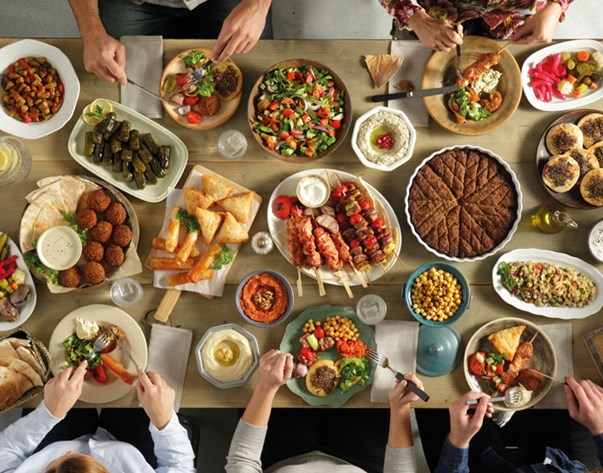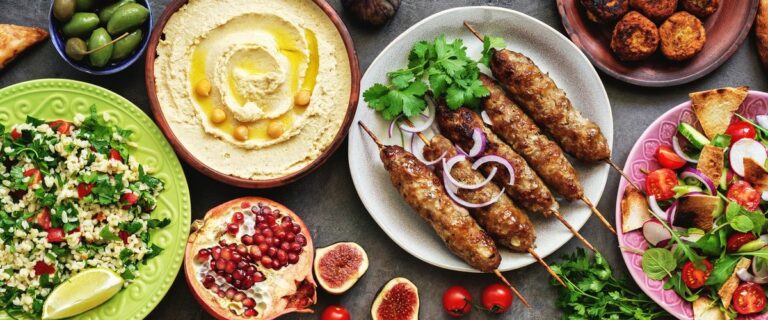Must-Try Dishes in Lebanon
Lebanese cuisine is known for its fresh ingredients, bold flavors, and vibrant colors. It combines Mediterranean and Middle Eastern influences to create unique and delicious dishes that will tantalize your taste buds. If you are planning a trip to Lebanon, here are some must-try dishes that you should not miss.
Introduction to Lebanese Cuisine
Lebanese cuisine is a fusion of different cultures, reflecting the country’s long history of immigration and trade. The cuisine is heavily influenced by the Mediterranean diet, which emphasizes fresh fruits and vegetables, seafood, and olive oil. Middle Eastern spices and herbs are also used extensively, giving Lebanese dishes their signature flavors.
Lebanese cuisine is known for its mezze, a variety of small dishes that are meant to be shared. Mezze often includes dips, salads, and grilled meats, as well as freshly baked bread. Lebanese cuisine is also famous for its use of herbs, particularly parsley and mint, which are used in many dishes.
6 Lebanese Dishes to Try While Visiting
- Kibbeh: This is the national dish of Lebanon and is made of minced meat, bulgur wheat, and spices. It is often shaped into footballs or patties and deep-fried to create a crispy exterior. Kibbeh can be eaten as a main dish or as part of a mezze.
- Tabbouleh: This is a refreshing salad made of chopped parsley, tomatoes, onions, and bulgur wheat. It is dressed with lemon juice and olive oil and is often served as a side dish or as part of a mezze.
- Hummus: This is a dip made of chickpeas, tahini, garlic, and lemon juice. It is creamy, flavorful, and is often served with freshly baked bread or vegetables.
- Shawarma: This is a popular street food in Lebanon and is made of marinated meat that is roasted on a spit. The meat is sliced into thin strips and is often served in a wrap or with rice.
- Moussaka: This is a vegetarian dish made of eggplant, tomato sauce, and chickpeas. It is often topped with a layer of cheese and baked until golden and bubbly.
- Fattoush: This is another salad that is popular in Lebanon and is made of lettuce, tomatoes, cucumbers, radishes, and toasted pita chips. It is dressed with a tangy sumac dressing and is often served as a side dish or as part of a mezze.
Kibbeh: The National Dish of Lebanon
Kibbeh is the national dish of Lebanon and is a staple of Lebanese cuisine. It is made of minced meat, bulgur wheat, and spices and can be shaped into various forms, including footballs, patties, and layered pies. Kibbeh is often deep-fried to create a crispy exterior and is served with yogurt or a tomato-based sauce.
There are many variations of kibbeh, including vegetarian versions made with pumpkin or spinach instead of meat. Kibbeh nayyeh is a raw version of kibbeh that is made with raw meat and bulgur wheat and is often served as part of a mezze. Kibbeh is a versatile dish that can be enjoyed as a main course or as part of a mezze.
Tabbouleh: A Healthy and Flavorful Salad
Tabbouleh is a refreshing salad that is made of chopped parsley, tomatoes, onions, and bulgur wheat. It is dressed with lemon juice and olive oil and is often served as a side dish or as part of a mezze. Tabbouleh is a healthy and flavorful salad that is packed with nutrients and antioxidants.
Tabbouleh is often served with freshly baked bread and can be used as a base for wraps or sandwiches. It is a versatile dish that can be adapted to suit your taste preferences. For example, you can add more or less lemon juice depending on how tangy you like it, or you can add chopped mint for extra flavor.
Baklava: A Sweet Treat for Dessert
Baklava is a sweet treat that is popular in Lebanon and throughout the Middle East. It is made of layers of phyllo pastry, chopped nuts, and honey syrup. Baklava is crispy, sweet, and nutty, and is often served with a cup of coffee or tea.
There are many variations of baklava, including ones that are made with pistachios or walnuts instead of almonds. Baklava is a perfect dessert to end a meal or to enjoy as a snack. It is also a great gift to bring home for friends and family.




